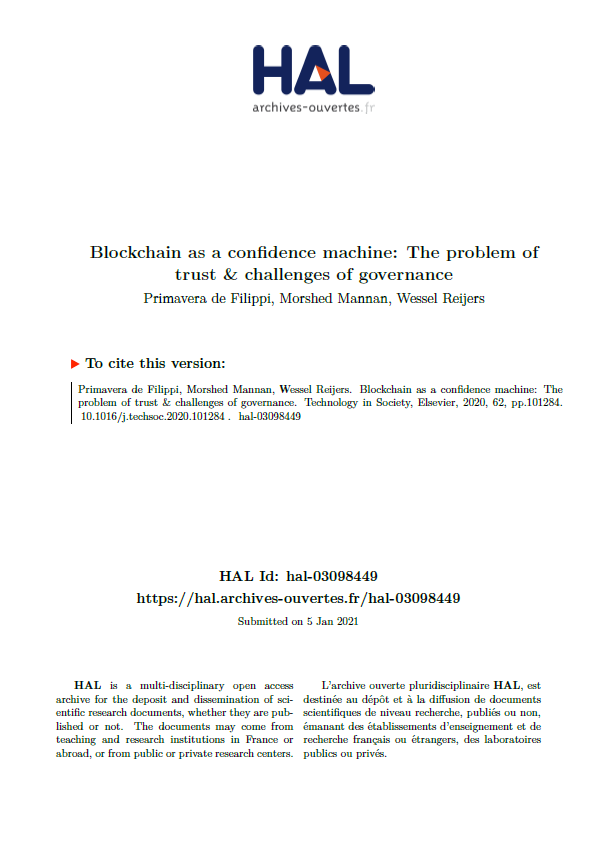
Blockchain as a confidence machine - the problem of trust - challenges of governance
By: Primavera de Filippi, Morshed Mannan, Wessel Reijers
Published: 2021-01-01
Organization: HAL
Tags: Confidence, Blockchain, Governance, law
Overview: Blockchain technology was created as a response to the trust crisis that swept the world in the wake of the 2008 financial crisis. Bitcoin and other blockchain-based systems were presented as a “trustless” alternative to existing financial institutions and even governments. Yet, while the trustless nature of blockchain technology has been heavily questioned, little research has been done as to what blockchain technologies actually bring to the table in place of trust. This article draws from the extensive academic discussion on the concepts of “trust” and “confidence” to argue that blockchain technology is not a ‘trustless technology’ but rather a ‘confidence machine’. First, the article provides a review of the multifaceted conceptualisations of trust and confidence, and the relationship between these two concepts. Second, the claim is made that blockchain technology relies on cryptographic rules, mathematics, and game-theoretical incentives in order to increase confidence in the operations of a computational system. Yet, such an increase in confidence ultimately relies on the proper operation and governance of the underlying blockchain-based network, which requires trusting a variety of actors. Third, the article turns to legal, constitutional and polycentric governance theory to explore the governance challenges of blockchain-based systems, in light of the tension between procedural confidence and trust.
